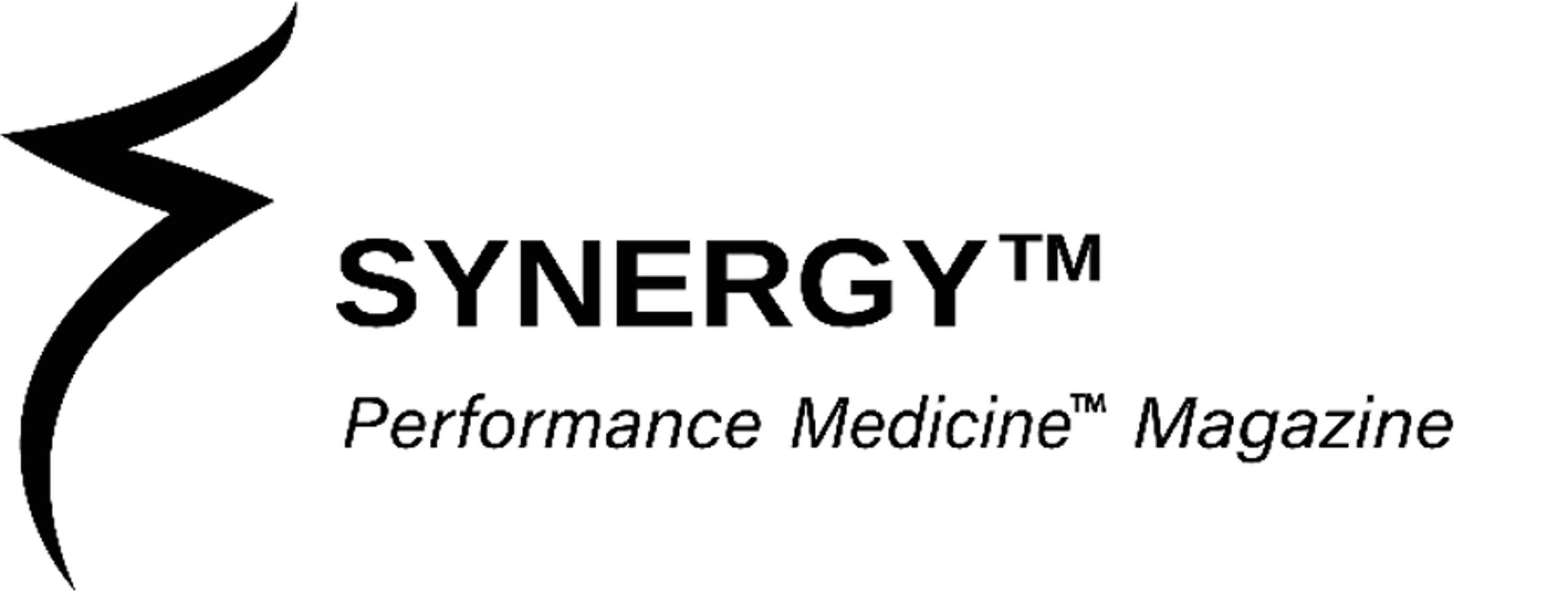
Optimized Endurance
Health and longevity have taken a backseat to performance.
Endurance athletes often equate fitness with health. Health must predominate performance in the endurance sports world.
It is possible to perform admirably despite your health, however, the long-term insidious ramifications are inevitable. The key is unparalleled performance because of your health. Synergy is the lynchpin.
Lost in the rigorous training, macronutrient partitioning, periodization, mindset, and related facets of the endurance athlete is the premise that health, performance, and longevity are inside-out propositions.
The beauty of endurance training is that it teaches us awareness. This awareness not only delineates effort from struggle but reality from perception – even though perception drives reality.
Being fit yet unhealthy is a recurring theme on the trails and in life – whether you are a weekend enthusiast or a podium finisher.

Habits determine lifestyle. One of its most insidious aspects is its ability to dull your awareness and discipline. Optimal health, performance, and longevity mandate an integrative approach. Mindfulness manifests synergy and cultivates self-actualization.
The key to unlocking your health, performance, and longevity mansion doors is when lifestyle and chronotype are in sync. Homeostasis is the desired outcome – with synergy being the lynchpin.
A personalized approach to your health, performance, and longevity represents the keys to your mansion. Understanding biomarkers that determine your nutritional needs and support your desired training outcomes is optimal.
A biomarker is a biological indicator of your body’s internal condition. It is a metric indicative of an environmental phenomenon respective to aberrations, infection, disease, and so forth related to homeostasis.
Tracking biomarkers during your training cycles via a personalized plan will enhance your health, performance, and longevity. Find below a few categories and key biomarkers to monitor if you truly want to transcend your health, performance, and longevity in life and sport.
Sleep
Sleep represents rest and regeneration. It is as essential to our existence as food, air, and water.
Sleep allows your body to become repaired and optimized. Your heart rate, breath, and brain waves downshift, muscles relax, and your hormones become activated. It is a precious time of healing for your brain and body.
Toxins are flushed, memories are consolidated, revitalization occurs, hormones balance, immunity is enhanced, and cardiometabolic function is optimized. Sleep is the key to vibrant energy, health, performance, and longevity in life and sport.
Research conclusively shows that 7-9 hours of sleep per night is optimal. Metabolic mayhem and accelerated aging are often the result of deviations from the standard sleep protocol.
The 24-hour sleep-wake circadian cycle impacts the length and quality of sleep. Disruption of your inner clocks is a big deal. The immediate impact is often noticed upon waking, however, the cumulative effect of its insidious interface with the complex human system is undeniable.
Blue light, cortisol level, room temperature, darkness level, noise, and shift work wreak havoc on the quality of your sleep by disrupting sleep onset, deep sleep, REM [Rapid Eye Movement] sleep, number and length of disturbances, and so forth.

Stages of Sleep
→ Non-REM sleep represents the transition from wakefulness. The ideal sleep onset should be 15-20 minutes;
→ Non-REM light sleep before deep sleep;
→ Non-REM sleep is the period of deep sleep necessary to feel regenerated in the morning. This is known as the Delta Phase;
→ REM sleep occurs about 90 minutes after falling asleep. Mixed-frequency brain wave activity resembles wakefulness. This stage is the dream state.
Nearly 75% of your night is spent in non-REM stages, 25% in REM sleep, and 10-15% in the deep zone is ideal. Micro awakenings are brief periods in which you wake, shift, or change positions, and fall back to sleep without any memory of them.
It is normal to have 3-5 micro awakenings per night. Awakenings outside this realm constitute a sleep disturbance – which impacts health, performance, and longevity beyond the scope of this article.
Listen to your body. It may become prudent more often than you desire to trade personal time for snooze time based on your lifestyle. It will pay dividends to your health, performance, and longevity. Measure your sleep metrics via Oura Ring, WHOOP, Apollo, and a host of other options.
Nutrition
Food is fuel. Nothing more, nothing less. Endurance athletes must select the appropriate fuel to endure rigorous training, extreme conditions, recovery, and the innumerable variables inherent to his/her sport.
Consuming a balanced diet with fiber-rich carbohydrates, healthy fats, and lean protein is essential for optimal performance. Carbohydrates provide the requisite energy while healthy fats support health and sustain endurance. Protein is crucial for muscle recovery and growth. Micronutrient density and timing are the keys.
The foregoing represents the basic nutritive plan to achieve unparalleled performance absent sabotaging health and longevity. Understanding and integrating the seemingly infinite number of dietary options from carnivore to omnivore, ketogenic to paleo, and everything in between to shift macronutrient formulas is vexing. Read more about an unsung hero in the endurance sports world: metabolic efficiency.
A balanced diet with adequate caloric intake, macronutrient partitioning, and micronutrient density may not be enough to achieve your desired results. Nutrient requirements frequently change without your permission and deficiencies may be prevalent. Learning your biomarkers through InsideTracker blood testing will identify areas that require support.
Specific biomarkers can indicate whether or not you need to consume more calories or increase certain macronutrients, for example, to adapt to your training load, sleep metrics, heart rate variability, and genetic propensities. InsideTracker also provides personalized food recommendations to optimize biomarkers.

Training Regimen
Cortisol levels must return to normal levels after exertion or stressful events. Cortisol is a steroid hormone that is released in response to stress. Its impact on your health, performance, and longevity is governed by the ANS [autonomic nervous system].
Our mindset affects our homeostasis. One of the most insidious yet impactful elements of your training is your autonomic nervous system [ANS]. The state of the ANS determines whether the body is in survival mode or in regeneration mode.
There are two branches of the ANS: the sympathetic nervous system [SNS “fight/flight”] and the parasympathetic nervous system [PNS – “rest/digest”]. The SNS compromises normal bodily functions and negatively impacts our health and performance proportionately when prolonged.
The SNS compromises normal bodily functions and negatively impacts our health and performance proportionately when prolonged. Research has indicated most people reside in the SNS zone – which remains exacerbated by the global pandemic. Find some compromised areas below:
→ Suppressed digestion – especially gluten and other common allergens;
→ Decreased tissue hydration;
→ Compromised immune system;
→ Poor circulation;
→ Diminished blood flow | stroke volume;
→ Impaired cognition;
→ Body structure compressed – leading to joint inflammation and chronic pain
PNS allows the body to function optimally in the spirit of repair and regeneration. A healthy nervous system has an optimal balance of activation of the parasympathetic nervous system and activation of the sympathetic nervous system.
Prolonged stress negatively impacts health, performance, and longevity. The benefits of stress reduction from exertion are equally broad. The following are some of the areas where function is greatly improved by a healthy nervous system:
→ Premature aging;
→ Blood circulation;
→ Tissue hydration;
→ Brain function;
→ Cardiovascular health;
→ Digestion | food allergens:
→ Cognition;
→ Lymphatic system;
→ Pain relief;
→ Posture;
→ Respiration;
→ Immune system;
→ Stress reduction

Simple breathwork will perform wonders to balance your ANS. It is based on a concept termed Cardiac Coherence. The key is to activate your PNS to slow your heart rate and enhance heart rate variability [HRV]. It is a synergistic approach to homeostasis via Pranayama. Find a few benefits of breathwork below:
→ Nitric Oxide production;
→ Mental clarity;
→ CO2 retention;
→ Optimized aerobic capacity;
→ Enhanced sleep;
→ Mitigated salivary and plasma cortisol;
→ Boosts immunity;
→ Expands creativity;
→ Reduces stress | fear;
→ Tissue and organ oxygenation
Overtraining is an insidious pathway to physical stress and elevated cortisol levels with the risk of chronic fatigue, high glucose levels, muscle breakdown, and weight gain being the result.
Improve cortisol levels and balance your ANS by integrating mindfulness practices such as meditation, yoga, breathwork, journaling, and so forth.
Fatigue
Iron deficiency is one of the most pervasive issues on the planet – especially women. Endurance athletes face a greater risk of lower or deficient iron status. Female endurance athletes take this risk to new levels; often do not recognize its insidious effect on health, performance, and longevity until the situation becomes severe.
Iron is depleted during intense and prolonged exertion through sweating and gastrointestinal bleeding among other avenues. Ferritin is a protein that stores iron. It is the primary indicator of iron levels in the body. Ferritin is not a biomarker routinely checked by physicians.
Hemoglobin is a protein containing iron that facilitates the transport of oxygen to red blood cells, tissue, and organs. Iron deficiency inherently diminishes red blood cells and hemoglobin levels. A shortfall of oxygen via blood transport to your muscles and brain negatively impacts your health, performance, and longevity.
Symptoms of iron deficiency include a weakened immune system, chronic fatigue, irritability, excessively high exertion heart rate, and frequent injury. Pair iron-rich foods with Vitamin C to enhance absorption and improve ferritin levels.
Inflammation
Acute inflammation is a normal response to exertion. A sprained ankle is an example of acute inflammation. Prolonged levels of inflammation that cause fatigue, muscle soreness, and tissue damage, delay recovery time, and weaken the immune system among other issues are a different matter.
High-sensitivity C-reactive protein [hs-CRP] is a marker of inflammation that predicts incident myocardial infarction, stroke, peripheral arterial disease, and sudden cardiac death among healthy individuals with no history of cardiovascular disease, and recurrent events and death in patients with acute or stable inflammatory symptoms.
The high-sensitivity C-reactive protein [hs-CRP] test is a blood test that finds lower levels of C-reactive protein [CRP]. This protein measures general levels of inflammation in your body. The hs-CRP can be used to find the risk for heart disease and stroke in people who don’t already have heart disease.
The hs-CRP test is different than the standard CRP test. The standard test measures high levels of the protein to find different diseases that cause inflammation. The hs-CRP test measures low levels and focuses on the risk of heart disease and stroke – even among endurance athletes who are often fit yet unhealthy.
Consuming more foods high in antioxidants – especially Vitamins A, C, and E – and incorporating more Vitamin D will improve hsCRP levels.
Ingesting Vitamin D with Vitamin K2 will ensure that calcium is easily absorbed and assimilated into the bones. Calcium alone cannot advance arterial flow and flexibility.

Atrophy
Vitamin D is the lynchpin to several aspects of your health, performance, and longevity. Your endurance performance is dependent on it. Vitamin D increases muscle mass and strength, improves bone density and health with calcium, increases the size and number of muscle fibers to promote speed and power, and bolsters lower body strength.
Vitamin D can reduce the level of the inflammatory marker hsCRP. Deficient vitamin D levels can decrease testosterone levels – especially in men. Testosterone is an anabolic hormone produced to enhance bone strength and stimulate muscle mass and strength.
Vitamin D is beneficial for endurance athletes because it increases the synthesis of muscle proteins, the concentration of adenosine triphosphate [ATP], strength, speed and power, plyometric proficiency, and the capacity to perform aerobic and anaerobic exercise.
Recovery
ALT stands for alanine transaminase. It is an enzyme found in the liver and muscle. An ALT test measures the amount of ALT in the blood. When liver cells are damaged, they release ALT into the bloodstream. High levels of ALT in your blood may be a sign of a liver injury or disease.
Muscles are damaged via exertion and ALT is released from the tissue to the bloodstream. The higher the intensity and the longer the duration of the exertion will result in elevated ALT levels. ALT often remains elevated for 7-10 days. It is a valuable metric for gauging one’s recovery prowess.
Optimize ALT with rest and active recovery days – especially after prolonged, strenuous exertion.
Supplementation
Integrating optimal food choices ranks number one on the nutrient scale, however, it is possible to be deficient in several areas concerned with your health, performance, and longevity. Enter supplementation.
Eliminate the guesswork via cutting-edge scientific protocols to precisely determine your nutritional needs and recommended optimization strategies. Find more information at Performance Medicine™.
Blood Analysis
Regular testing of the foregoing biomarkers plus sex hormone precursors, Vitamin B12, magnesium, and a host of other vitamins and minerals that impact your health, performance, and longevity is the key.
Endurance athletes can merge their race strategy with training metrics – which will be impacted by sleep, nutrition, supplementation, stress, hormones, recovery protocols, and the rest of it.
Growth has no endpoint…
We have the technology to eliminate the guesswork by analyzing your genetic blueprint to modify gene expression. Challenge yourself today to boldly manifest the keys to your mansion of unparalleled health, performance, and longevity.
Merge knowledge of your genetic code, blood analysis, and biological age with customized, curated consults tailored to your needs. Everything changes when you discover the difference between effort and struggle in life and sport.
A limitless life is a choice…
Click Performance Medicine™ to ignite your limitless genetic potential in life and sport.




Pingback: Adiponectin – SYNERGY™
Pingback: Key Longevity Biomarkers – SYNERGY™
Pingback: Epigenetics – SYNERGY™